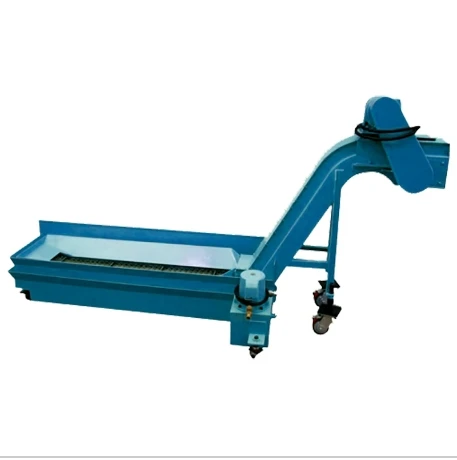chip conveyor
The Role of Chip Conveyors in Modern Manufacturing
In the landscape of modern manufacturing, the efficient handling of metal chips produced during machining processes is a critical concern. Chip conveyors play an essential role in the chip management system, facilitating the seamless transport of these by-products from machine tools to collection or disposal areas. As industries move towards greater automation and efficiency, understanding the significance and functionality of chip conveyors becomes increasingly important.
Chip conveyors are specifically designed devices that help in the removal and transportation of metal shavings, chips, and scraps generated during machining operations. Without an effective chip management system, these by-products can accumulate, leading to increased downtime, potential safety hazards, and higher operational costs. The implementation of chip conveyors can significantly improve production efficiency by ensuring a clean working environment and maintaining machine performance.
There are various types of chip conveyors, including belt-type, screw-type, magnetic, and pneumatic systems
. Belt conveyors are one of the most common types, utilizing a continuous belt to transport chips from the machining area to a collection point. Screw-type conveyors, on the other hand, use a rotating screw to move the chips through a trough, making them suitable for larger volumes of material. Magnetic conveyors are particularly effective for ferrous materials, while pneumatic systems utilize air pressure to transport lighter chips over distances.chip conveyor

One of the key advantages of using chip conveyors is their ability to enhance workplace safety and efficiency. By automating chip removal, manufacturers can significantly reduce the risk of accidents and injuries that can occur during manual handling. Moreover, a clean workspace allows machine operators to focus on their tasks without the distraction of clutter, leading to higher productivity and more precise machining operations.
Additionally, chip conveyors contribute to the sustainability of manufacturing processes. By facilitating the efficient collection of metal chips, these systems make recycling easier and more effective. Recycled metal can be repurposed, reducing waste and lowering material costs for manufacturers. In this way, chip conveyors not only streamline production but also support eco-friendly practices within the manufacturing sector.
In recent years, advancements in technology have led to the development of more sophisticated chip conveyor systems. With the integration of smart technologies, such as sensors and automation controls, manufacturers can monitor chip levels and adjust operations in real time. This proactive approach allows for better resource management and further optimizes the manufacturing process.
In conclusion, chip conveyors are an indispensable component of modern machining operations. They enhance efficiency, ensure workplace safety, and contribute to sustainability efforts by facilitating effective chip management. As industries continue to innovate and automate their processes, the importance of reliable and efficient chip handling solutions will only grow. Investing in advanced chip conveyor systems may well be the key to maintaining competitiveness in the fast-paced world of manufacturing.








